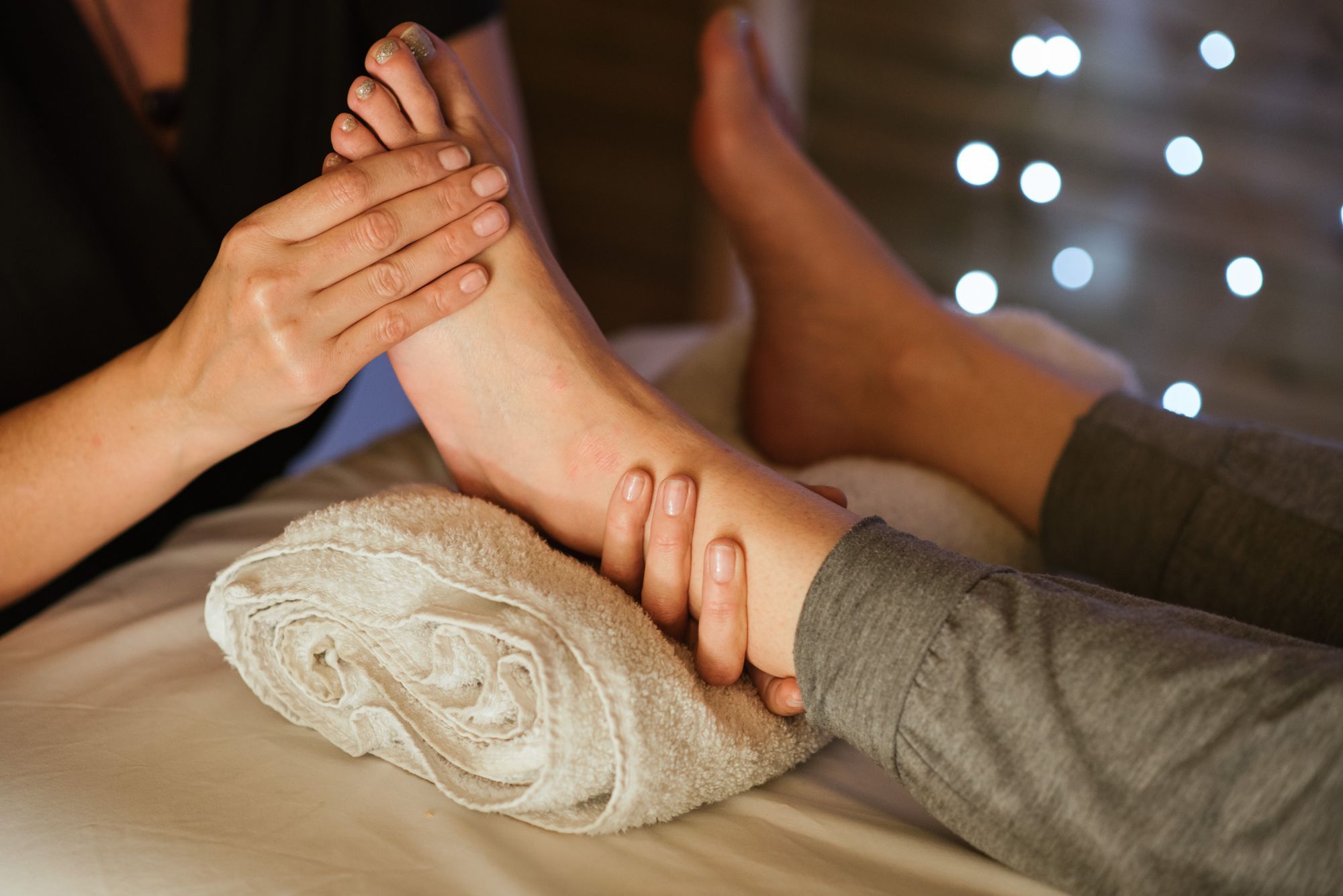Swollen Feet in Pregnancy: What it is And How to Help Ease The Swelling
The physiological changes that take place during pregnancy are responsible for the movement of fluid into your blood vessels, which can lead to swollen feet. During pregnancy, blood volume increases by 40 percent...

The physiological changes that take place during pregnancy are responsible for the movement of fluid into your blood vessels, which can lead to swollen feet. During pregnancy, blood volume increases by 40 percent. As the baby grows larger and your uterus puts pressure on veins in your pelvis, you may begin to feel some discomfort. Swelling typically develops slowly over the course of several weeks but may become worse during the second and third trimesters.
Page Contents
If you are already predisposed to fluid retention, during pregnancy some other factors will increase your risk. These include:
- inadequate intake of protein or sodium, which can lead to edema (swelling)
- High blood pressure, heart problems, or kidney problems
- Family history of pregnancy-related complications such as pre-eclampsia, gestational diabetes, toxemia or other conditions associated with pregnancy
How to prevent and treat swollen feet during pregnancy
- Clinical research has found that a combination of methods including limiting weight gain, avoiding long periods of standing or sitting, wearing supportive shoes, avoiding salt, and engaging in mild exercise can help prevent or alleviate swollen feet.
- Practice good hygiene by washing your feet daily with soap and water. Dry them carefully between the toes to avoid infection. Examine your feet weekly for blisters, cuts, redness, swelling, drainage, or warmth. Report these conditions to your doctor immediately.
- Avoid wearing high heels while pregnant, instead wear supportive shoes with low heels or flat shoes. They should not be too tight or have a slick bottom that could cause your feet to slide forward and stretch the muscles in the front of your legs.
- Sit down often if you are standing or walking for long periods of time. You can also elevate your feet when sitting. Place a stool or small chair under your desk at work so that you can prop one foot on it while working at your computer.
- If you need to remain standing for long periods of time, periodically shift your weight from one leg to the other and take breaks to sit down and put your feet up. If you have a job that requires you to stand for more than 30 minutes at a time, try wearing compression stockings.
- Wear shoes with good arch support and avoid flat sandals if possible.
- Stay hydrated by drinking lots of water throughout the day.
- Do some mild exercise such as walking or yoga which will help your body move fluid through your veins.
- Avoid eating salty or processed foods which can exacerbate the problem. If you already have high blood pressure, however, this is not recommended.
- Elevate your feet when sitting by propping them up on a stool or chair. You can also place pillows under your feet to help with swelling.
Some good exercises to help ease the swelling are:
- Do some mild exercise such as walking or yoga which will help your body move fluid through your veins.
- Avoid eating salty or processed foods which can exacerbate the problem. If you already have high blood pressure, however, this is not recommended.
- Elevate your feet when sitting by propping them up on a stool or chair. You can also place pillows under your feet to help with swelling.
- Swelling in the ankles is caused by blood pooling there, which happens when valves that keep the circulation running efficiently malfunction due to pregnancy hormones. The best way to reduce this kind of swelling is elevation and compression. You can do this by crossing your legs and placing them on a higher surface such as a stool or ottoman then applying pressure with your hands to the area where the swelling is occurring.
- Another way to help with swollen ankles is to soak your feet for 10 minutes in warm water (hot water can be dangerous during pregnancy). You can add some baking soda or sea salt (or even Epsom salts) which will also help. Then dry your feet well and elevate them above the level of your heart for a half hour or so.
- Try to avoid standing in the same place for long periods of time. It's also a good idea to keep your feet moving, especially when sitting with them elevated. Rocking your foot from side to side or back and forth can help circulate blood properly through your legs.
- Swelling in the hands occurs as a normal part of pregnancy. The best way to reduce swollen hands is elevation and exercise. You can also try placing them in warm water or massage your hands with moisturizer containing shea butter, cocoa butter, or grapeseed oil.
- To help swollen feet you can prop them up when sitting by using a stool or ottoman. Massage the area gently with a warm washcloth.
- Try to avoid wearing socks and shoes that are too tight on swollen feet. Avoid standing in one place for long periods of time, especially if you have varicose veins.

